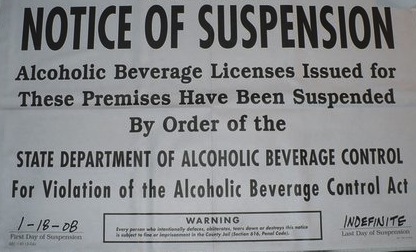Law Offices of John P. Connell, P.C.: Under Massachusetts law, any individual or corporation may transfer any existing alcoholic beverages license held under ch. 138 to another individual or corporation, provided that the local licensing authority and the Alcoholic Beverages Control Commission (“ABCC”) approves the requested transfer.
When licensed businesses transfer managerial duties or other privileges of a license to individuals not approved by the local licensing authority and the ABCC, however, they are in violation of M.G.L. c. 138, § 23, which prohibits a licensee from allowing another individual from operating the license “for his own account.” Griffin’s Brant Rock Package Store, Inc. v. Alcoholic Beverages Control Comm’n, 12 Mass. App. Ct. 768, 771 (1981). “Control,” of the business operation, therefore, is the touchstone in determining whether such a transfer has occurred. Such undisclosed transfers of a licensed establishment’s “control” are actively investigated by the ABCC and the licensee is subject to significant sanctions should the ABCC determine that the privileges of an alcoholic beverage license were in fact transferred to another for their benefit.
Recently, for example, “Felt,”a bar on Washington Street in Boston, had its license suspended indefinitely after it was determined that its ownership and management had been transferred at least twice without proper approval. In the first instance, the original licensee, Felt LLC, a limited liability company (“LLC”), changed its business organization to a corporation and began operating as Felt, Inc. Although the change in business organization was argued to have been administrative, the LLC and the corporation were found to be two separate entities, and the transfer of the license’s ownership from one to the other therefore required express approval from the ABCC. In the second instance, it was determined that a third organization with some common ownership, Felt Enterprises, LLC, paid suppliers of alcoholic beverages that were delivered to Felt, This third undisclosed business entity’s participation in the management of the license also constituted a transfer of privileges without express approval by the ABCC. In February of 2012, therefore, the ABCC indefinitely suspended Felt’s license and the bar was closed.
In another recent instance, the ABCC suspended the liquor license of “Jae’s Spices,” a restaurant in Pittsfield after it was discovered that the originally approved owner of the license had been allowing another individual to operate the restaurant through his own business’ checking account, for his own profit and loss, while the original owner only came by perhaps twice a week to check on the business. Similarly, the ABCC’s determination that the licensee had violated G.L. c. 138, § 23 caused it to indefinitely suspend the license, and the business closed.
The Revere Businessmen’s Association, Inc. had its all alcohol license canceled in 2011 after the ABCC discovered that the licensed business’ control had been handed over to an unapproved individual. In this case, the undisclosed and unapproved individual was running the approved licensee’s business freely in her own account, hiring employees, paying expenses and collecting cash receipts without the authorization to do so. In this case, the ABCC canceled the alcoholic beverages license altogether.
To avoid sanctions such as suspension or cancelation of a license, a licensed business with the intention to transfer ownership or control to another, must seek the approval of its local licensing authority and the ABCC. If it is not the intention of a licensed business to transfer ownership and interest, the license manager should make sure not to delegate any of his or her privileges or duties to another individual. The licensed business which does not want to transfer ownership of the license but does want to employ another to significantly manage or control the business of the license, might also choose to draft a “management agreement,” which also needs to be specifically approved by the local licensing authority and the ABCC before such control over the premises can be exercised.
CONTRIBUTED BY COURTNEY MCGEE

